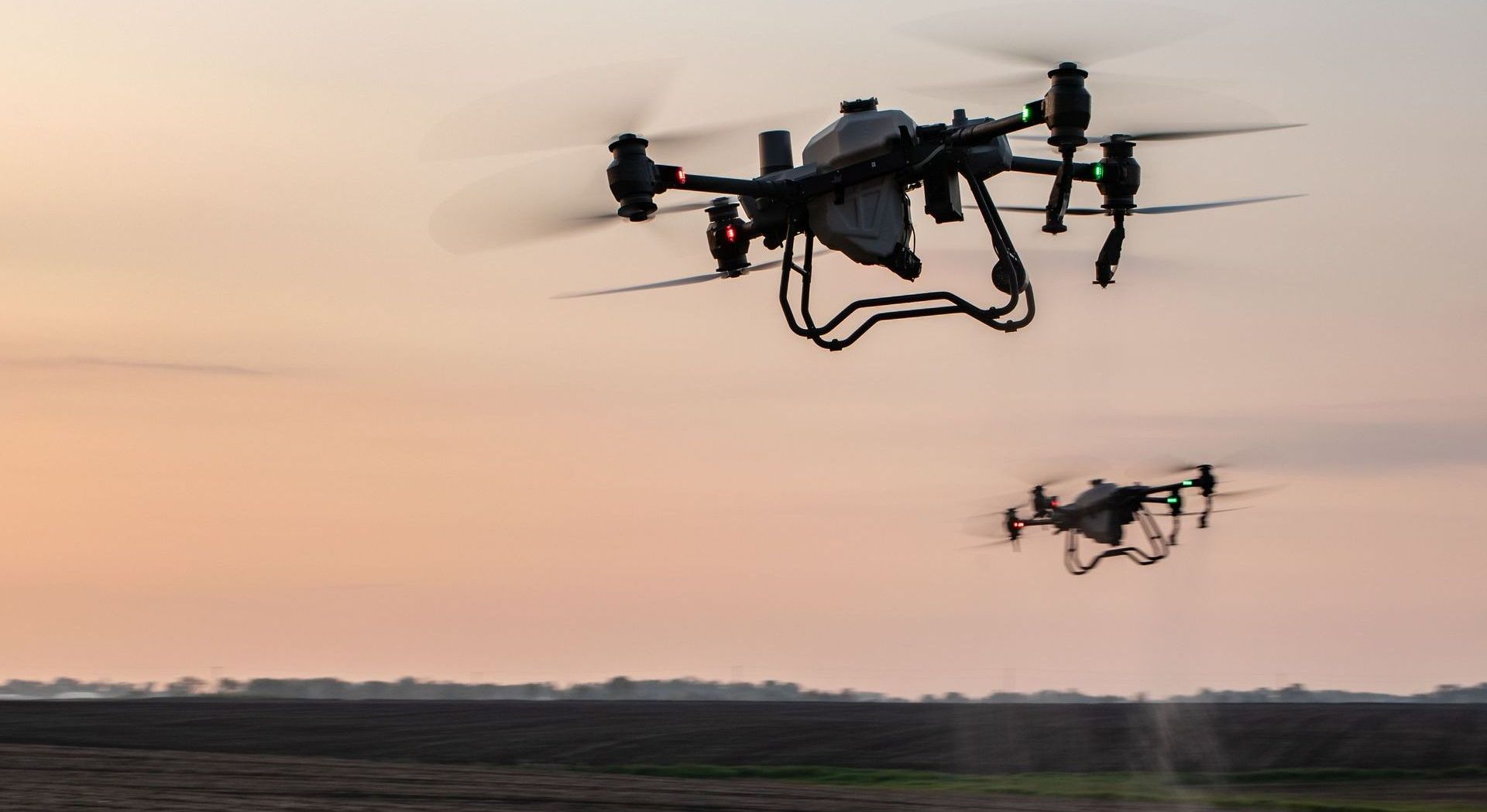RESOURCES
Countering CCP Drones Act: Why Banning New Chinese Ag Drones Hurts U.S. Farmers and Rural Communities #AgDronesFeedAmerica
June 18, 2024
TAKE ACTION NOW AGAINST THE Countering CCP DRoneS ACT
Agriculture is always pushing for ways to produce more. At the forefront of this transformation are agricultural drones, compact yet powerful machines that are reshaping the way farmers tend to their fields and maximize their crops.
Recently, Congress has been considering the Countering CCP Drones Act (H.R. 2864), a proposed legislation aimed at banning new DJI drones, threatening to disrupt this growing industry and undermine the meaningful impacts these technologies are having on rural economies. Rantizo, a company dedicated to empowering drone operators and retailers, stands firm in its belief that such a ban would halt the remarkable progress and impact that drones have had within the agricultural community.
"Agricultural drones are creating new job opportunities in rural communities and enabling the next generation of farmers," said Mariah Scott, CEO of Rantizo. "These affordable high quality spray drones are crucial for ensuring American agriculture remains competitive on the global stage.”
Feeding Rural America, One Acre at a Time
Drones are no longer a novelty; they are a vital and impactful technology that has proven its worth in the fields of America. In 2023 alone, agricultural spray drones covered an astonishing 3.7 million acres across 41 states and over 50 crops, generating a staggering $78.5 million in rural communities. These reasonably priced drones reduce production costs and increase farm profitability, making it easier for aspiring entrepreneurs and local companies to establish spray drone businesses in their home towns.
Enabling the Next Generation of Farmers
The impact of agricultural drones extends far beyond mere economics. They have become a gateway for the next generation of farmers, offering a path back to the family farms they once called home. In 2022-2023, a remarkable 48% of spray drone purchasers had the opportunity to return to their family's agricultural roots because of these innovative machines.
Jeremiah Gebhart, a Missouri spray drone operator, echoes this sentiment: "I always wanted to come back and farm. And the drones kind of gave me that opportunity. It allowed me to come back to the family farm, helping with planting and harvest, but during the summer period I have my own business, my own line of income so that hopefully one day I can earn enough to start buying my own farm."
A Catalyst for Rural Job Creation
Spray drones are not just creating jobs; they are revitalizing rural communities across America. Nearly 100% of these businesses are small enterprises or sole proprietorships, with 63% employing an average of 2.4 people. Moreover, 19% are either owned by veterans or employ those who have served in the military, providing post-military career paths and opportunities.
Maintaining U.S. Competitiveness on the Global Stage
In the ever-competitive global agricultural market, where farmers in the United States face stiff competition from countries like Brazil and China, access to cutting-edge technology is critical.
Chinese drones currently excel in performance, pricing, and reliability compared to competitors. U.S. spray drones, often assembled with Chinese parts, are on average 2.5x more expensive and limited in manufacturing capacity. If Chinese spray drones are banned, there would only be one FAA-approved non-Chinese manufacturer with commercially available drones over 8 gallons. This means drones will be more expensive and less capable for U.S. farmers and retailers.
As Logan Petree, a high school entrepreneur who covered 2,500 acres with his spray drone business, aptly stated, "To remain competitive, [U.S. farmers] need access to industry-leading ag tech that ensures efficient, profitable, resource-preserving crop production capabilities."
Data Security and Protection: Addressing Concerns
Multiple independent security audits (FTI Consulting, Kivu Consulting, U.S. Department of Energy) have found no evidence of covert data collection by DJI drones, a leading manufacturer in the industry.
Agricultural drone data is limited to flight frequency and field boundaries, which is already publicly available information. As an extra precaution, users can keep this data from transferring by disabling internet connectivity on the drone and remote controller. Additionally, spray drones do not collect the chemical information for products being applied.
A Bright Future for Rural America
By enabling a range of affordable drone options from diverse manufacturers, the agricultural drone industry is feeding rural America – creating jobs, revitalizing communities, and ensuring U.S. agriculture remains globally competitive for generations to come.
Rather than limiting options, government support is needed to help companies from allied countries match the performance, pricing, and reliability of Chinese drones. U.S. farmers require access to leading agricultural technology to drive efficient, profitable, and sustainable crop production.
Help us preserve American jobs in rural communities and the ag industry’s access to best in class technology by contacting your Senators using this
helpful tool. At that link you’ll find a pre-filled form. Customized messages are more effective with congressional offices so please edit the message to convey how this ban would affect you and your community.
Disclaimer: Thank you to the collaborators and leaders amongst this coalition to drive awareness, including AgriSpray Drones for their operator testimonials.
share this
past blog posts
Related blogs

The right timing of herbicide applications is crucial for crops’ growth stage. Camby Reynolds with Simplot Grower Solutions knows this well for his customers. With drone spraying, he’s able to find the best time for applications for weed management, maintain irrigation, all while maintaining the overall crop growth. Learn more about how he’s implemented spray drones with ground rigs and airplanes in the Bighorn Basin in Wyoming: https://www.rantizo.com/aerial-applications-integrating-spray-drones-and-airplanes-into-a-crop-protection-plan




